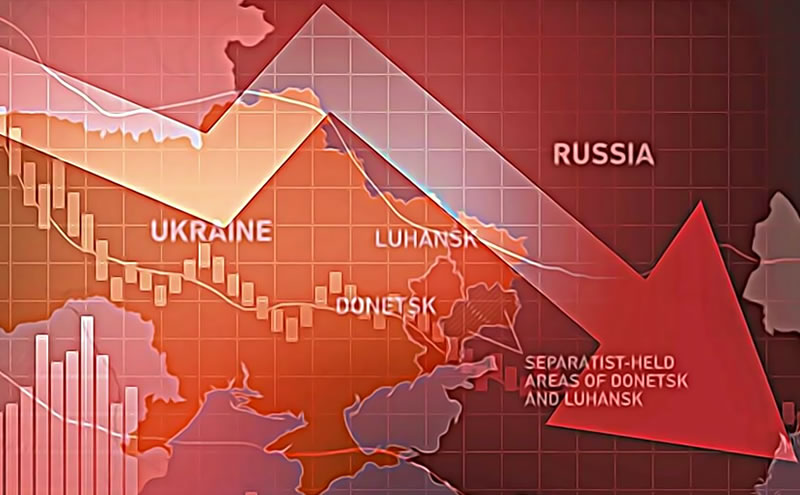War is unpleasant, but human nature has shown war to be a necessity fueled by social, economic, and national conflicts. Thousands of years of human history have proven this time and again. Although methods of war have evolved, humans are still engaged in one form of conflict. This article will describe how you can position your portfolio when there is a war and the effects on markets.
The Relationship Between War And Your Portfolio
As the Ukraine-Russia conflict is looming, stocks have been seesawing. Using the S&P 500 as an example, we will examine the impact of wars on the stock market. First, note that a war that is 50 to 60 years old has an impact on markets or even more so as current conflicts. The S&P 500 saw its largest drawdown during the German invasion of Czechoslovakia and then France in 1940. The S&P 500 fell by 25.8% during that period which lasted for 22 days. However, the market rose by 19% a year later, eliminating much of its losses.
During the attack on Pearl Harbor, the S&P 500 fell 11% on a single day. The day after, as we know, the U.S declared war on Japan, and after that, Germany declared war on the USA. But a year later, the S&P survived the turmoil and rose 15.3%. There is possibly some trend developing. And rightly so. During the 1973 crisis, the S&P 500 fell 17% and later began a slow recovery that was persistent.
According to historical data, the S&P 500 has fallen 6.5% 3 months after a conflict and has risen 13% a year later.
The current crisis between Ukraine and Russia would follow the same trend. But with inflation standing guard over us, we would see the Fed taking charge of inflation through interest rates evolution.
How To Respond To A War-Based Crash
You should see an armed conflict as a buying opportunity for quality stocks based on the trend above. However, the market often shrugs off an armed conflict after months, which seems odd considering how brutal wars are. What this means is that wars do not have a serious impact on the fundamental economic outlook of the United States or corporate profits related to the economy. So we could say the adage that “it’s good to buy when there’s blood on the streets” is trite.
But that doesn’t mean that some stocks do not suffer from armed conflicts. On the contrary, some industries outperform during conflicts, and some investments fare better. Moreover, the crisis would not affect global supply chains due to Ukraine’s position in the geopolitical milieu.
Judging from some indices that are being watched, there are already signs that funds are flowing from Russia and going to the Gold and metals sectors in about the same amount from ETFs. The bond markets are also seeing outflows due to the crisis. Typically, fixed-income funds are supposed to hedge against volatile markets, but the reverse is in this instance.
We believe that the Fed's response would involve holding back from raising interest rates or buying bonds. So overall, it wouldn’t matter if the Ukraine-Russia crisis resulted in a 10-12% drawdown in the markets.

















Rate this article